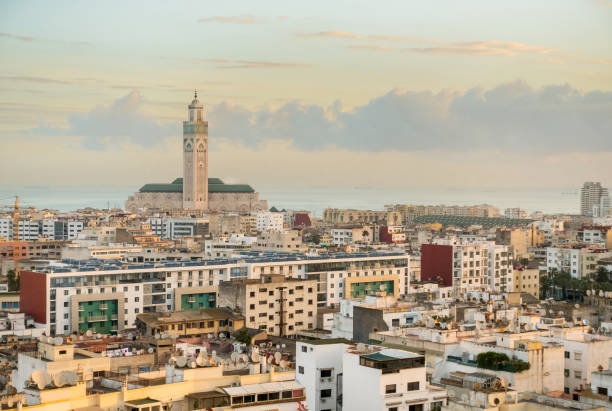Hotel Management
by Katherine Doggrell
Efforts by Morocco’s central bank and its government are expected to drive investment in real estate, with the hotel sector likely to benefit.
With the country suffering from a lack of hotels, observers predicted a “flight to branding” that could pave the way for the global flags.
The comments came as STR reported that Morocco’s hotels had registered the first RevPAR increase for a January month since 2014, driven by the number of visitor numbers generated during the FIA Formula E Championship race in Marrakech, as well as Marrakech Marathon.
Average hotel occupancy rate in Morocco was up 16.3 percent to 54.1 percent, ADR was 28.5 percent higher to 129.16 Moroccan dirhams ($182.64) while RevPAR was up 49.5 percent to 69.9 Moroccan dirhams.
According to JLL’s Morocco 2018 report, Morocco’s central bank widened the official band within which the dirham may fluctuate to 5 percent, with a maximum daily move of 2.5 percent above or below the official rate. As part of a broader monetary reform, this move is intended to bolster the competitiveness of Morocco’s economy and will potentially position the country as a regional economic hub, and the gateway to Africa.
“If the currency softens against the [U.S. dollar] and the euro, this will effectively make Moroccan property cheaper for investors from markets denominated in these currencies and attract further foreign direct investment into the real estate sector across Morocco and, most specifically, into Casablanca,” said Craig Plumb, head of research, JLL MENA, when the report was released last month.
The country has also seen the launch of REITs, which are expected to further broaden the range of investors.
Positive Sentiment
The Moroccan economy is expected to record real growth of 4 percent in 2018, driven by increased domestic consumption and public investment. The economy has attracted increased levels of FDI yearly since 2005 (with the exception of 2015) with real estate attracting around half of the total FDI. The increase has supported the Moroccan government’s Vision 2020, with the goal of seeing Morocco become one of the world’s 20 leading tourist destinations by 2020.
This is expected to spill over into the hotel sector. “Overall positive sentiment is being expressed in the wider Moroccan hotel investment market, reflected through operators, tenants and hotel investors,” said Amr El Nady, head of hotels & hospitality MENA, SVP global hotel desk, JLL. “It is believed the short- and medium-term will see increased domestic and off-shore investment activity either through development projects or outright acquisitions. Most probably owned—there is very limited appetite for off-shore leasehold or BOT approaches, unless as a strategic government initiative or part of a wider investment scheme.
“[Investors] will come under the form of property companies and funds, regional developers ultra-high net worth individuals, family offices and private equity. It is unlikely to see increased investment quantum proportion from risk averse investors such as pension funds, insurance companies, however.”
And with this enthusiasm, he said, came opportunities for brands. “As we speak, there is a flight to quality through international branding. The country has one of the highest percentage point of unbranded properties in the Middle East. A significant number of current owners are seeking international expertise to encumber either existing hotels or be a part of the new projects. We are currently involved in several similar assignments.”
Hilton, which has previously spoken of its interest in this region, has signed a management agreement with UAE-backed Wessal Capital to open a hotel in the Moroccan capital city of Rabat in 2022, under its eponymous brand.
Others are sure to follow.
Katherine Doggrell is an editor at Hotel Analyst, the U.K.-based news analysis service for hotel investors







